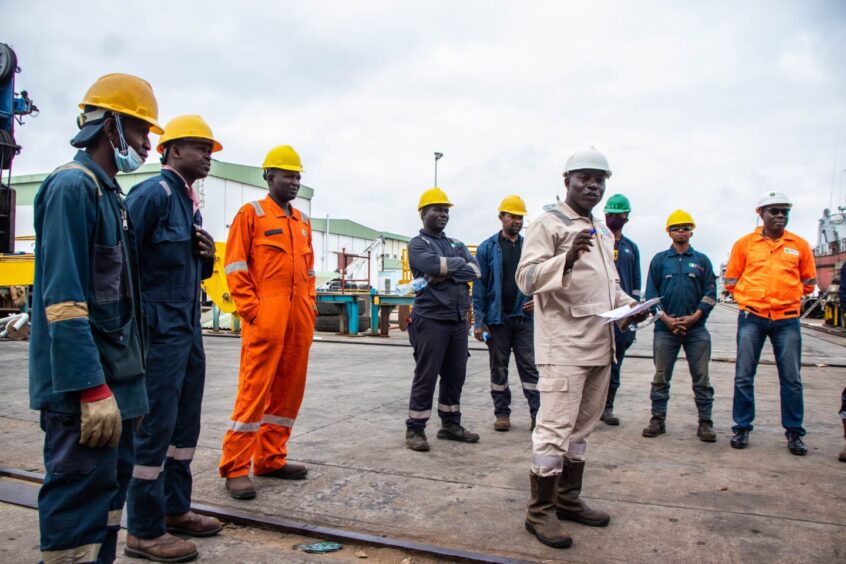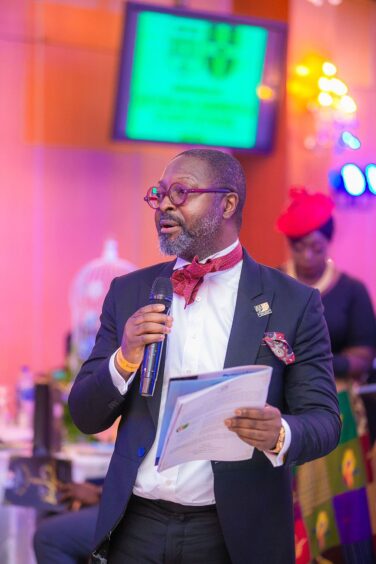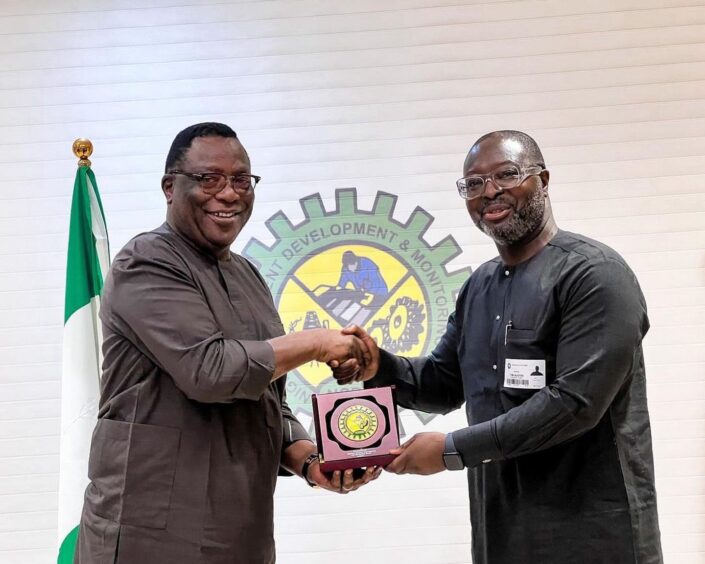
Nigeria poses a unique set of challenges to investors, but the country’s oil and gas sector is making progress – backed by supportive local content regulations.
Timi Austen-Peters keeps a close eye on the local market. Nigeria, he told Energy Voice, had made notable progress in developing industry locally to support the sector. Austen-Peters is chairman of Dorman Long Engineering, in addition to being the principal partner at barristers Austen-Peters & Co.
“Nigerian companies are at the point where we are exporting skills and talent. We’ve been hugely successful,” he said.
“The question is how – and how do we continue on this upward trajectory? There has to be diligent enforcement of local content regulations and regulators can’t act blindly, in a way that makes projects unviable or unsafe.”
New opportunities are emerging in Nigeria, as companies work through potential plans. One of the drivers for new investment are M&A deals, largely as a result of majors exiting the country.
Track record
Shell recently announced the sale of its Shell Petroleum Development Co. (SPDC) to Renaissance, a joint venture of five local companies. Other deals include a planned sale of some of Eni’s licences and ExxonMobil’s assets to Seplat Energy.
“The sale of assets from foreign majors to local operators is a huge opportunity for us. We recently built an offshore platform for First E&P, end to end. That company is a member of the consortium that is buying [Shell’s] SPDC. They think highly of us, we’re cheaper than other producers, local and foreign.”
First E&P’s experience with Dorman Long, Austen-Peters said, would likely see further opportunities with the wider Renaissance group. The sale, of SPDC and others, “bodes well for us”.
Dorman Long fabricated a wellhead platform, the Madu conductor supported platform (CSP), at its Lagos yard in 2022.
The local market is improving, the engineering executive said. “More and more projects are reaching [final investment decision] FID. We’re involved in a few.”
Work is on- and offshore, with a blend of new projects and work on mature infrastructure.
A particular area of growth is gas, aided by the Nigerian government’s declaration of a “decade of gas” for the 2020s. Storage and pipelines for gas projects are gaining attention.
“We need to add more infrastructure to unlock gas, as a transitional energy source. Gas is more abundant in Nigeria than oil and there are many linkages to other industries, such as fertilisers, plastics and so on. There’s a lot of focus on projects that will release Nigeria’s gas potential. Within the next three months, I expect that we’ll be able to announce four to five significant projects.”
One such area where Dorman Long has been active is SPDC’s ANOH gas project.
Regulator direction
Strategic direction from the government has driven interest in the country’s gas, in addition to securing a place for local industry in the value chain.
Austen-Peters noted he chaired a sub-committee, which works with the Nigerian Content Development and Monitoring Board (NCDMB).
Regulators must take audits, to assess current capacity and understand what is feasible, and what is not, the chairman said.
“NCDMB can then look at the sector and say, first, we can produce this amount of this in country. So that first amount goes to local yards, before moving into handing out waivers,” he said. As Austen-Peters acknowledged “I’m a huge beneficiary of that. If we didn’t have those opportunities, we wouldn’t develop the skills, increase efficiency and lower prices. It’s a win-win situation.”
Local industry benefits from having a mandated share of work, but also from having line of sight on new contracts. Regulators, Austen-Peters said, should work with all parties involved to help projects progress financially and move into development.
The local content regulations give “line of sight for the next five to 10 years. There’s another six or seven projects that I can see coming, which allows me to double down with investments into hiring and expansion.”
Nigerian industry cannot provide the full gamut of services for the industry, at least not yet. Austen-Peters acknowledged the NCDMB was working hard on how to continue making progress.
“The NCDMB is ready for the whole range of work, but sometimes local companies need to put on their big boy pants. Where’s your yard? Where’s your commitment? If the companies can work out what they really want to do, then NCDMB will help.”
Challenges
One of the obstacles facing construction companies is foreign exchange woes. When President Bola Tinubu came to power in 2023 he took a number of big decisions, including allowing the naira to depreciate – and lifting the petrol subsidy.
Austen-Peters’ company imports equipment, priced in US dollars, while operating within the naira economy.
“The key factor for me is steel, but Nigeria doesn’t produce steel. That’s hugely challenging. If you have line of sight to projects then you can sit with the commercial team and ensure viability of investments,” he said.
One way in which to tackle the problem would be to boost domestic production of steel. Austen-Peters expressed interest in this, but saying it needed to be carried out with logic.
“There are some white elephant projects that will never come to fruition,” he said. “We will start with recycled steel and producing steel sheets on a reasonable scale. Steel is a major major need. We’re eager to do anything that can reduce our costs and make our logistics more efficient.”
Dorman Long generates forex, Austen-Peters said, which provides the company with some shelter from the headwinds.
Despite the problems, the “country is unquestionably moving in the right direction. It takes time to feel it, it’s like surgery, when the cure has a pain of its own. Some people have been impoverished over night by the FX changes, it’s a significant challenge but the government has taken the right decision.”
The company is not immune from the financing crunch for the hydrocarbons sector. However, Dorman Long has raised funds locally and internationally. It expects to receive funds shortly from Afreximbank, “which will fill a gap that international banks have left. If people show they are serious, there is funding to be had.”
Historical expansion
Austen-Peters will be speaking at the upcoming Saipec event, in Lagos this month. The executive said the company was set to celebrate its history at the conference.
“We’ve shown it is possible to maintain and run a company like ours in Nigeria, to go from generation to generation, while maintaining standards of excellence and leadership. We show others that it can be done,” he said.
And for the future? While Dorman Long is lining up new projects domestically, it has also carried out work in Gabon and Cameroon, while considering Uganda, Mozambique and Senegal. “Work needs to be done to the right standard, in the country and across the continent.”

 © Supplied by Dorman-Long Engineer
© Supplied by Dorman-Long Engineer © Supplied by Dorman-Long Engineer
© Supplied by Dorman-Long Engineer